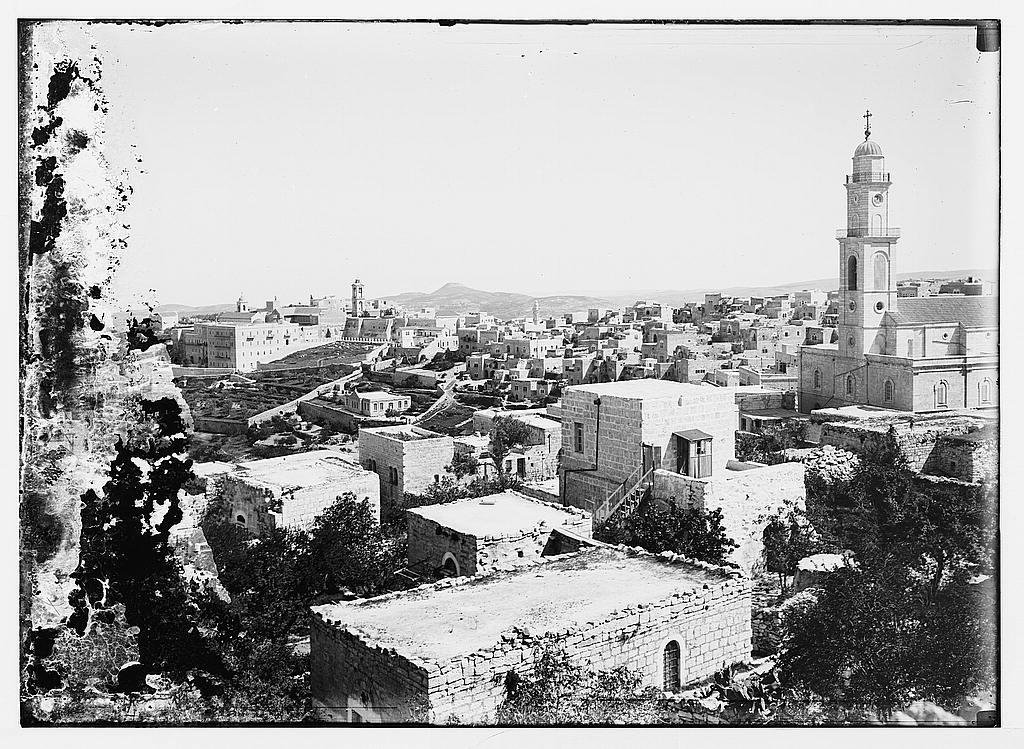Bethlehem (Hebrew for “house [or place] of bread”) was the birthplace of King David (1 Samuel 16:1-4). An unwalled village about five miles south of Jerusalem with little more than a hundred persons during the Herodian period, it was, nevertheless, the prophesied place of the Messiah’s birth (Micah 5:2-4).
Joseph, Mary, and perhaps their parents were possibly born in Bethlehem before migrating north into Galilee. Matthew and Luke mention Bethlehem in the birth narratives (Matthew 2:1, 5-6; Luke 2:4, 15). The phrase “because there was no room for them in the inn” (Luke 2:7) may better be rendered “because there was no space in the room,” indicating that Joseph and Mary may have found shelter in a relative’s home at the time.

Bethlehem with the Herodium in the distance 1898
Although the New Testament does not mention a cave, a second-century source states that Jesus was born in one. Many homes in Bethlehem were built in front of caves, so we can easily envision Joseph and Mary seeking appropriate privacy in a home’s back area that was used for stabling and storage. Matthew indicates that they remained in Bethlehem for some time, as Jesus Christ is not described as an infant but as a child when the Wise Men visited Him (Matthew 2:11-14).
The last mention of Bethlehem is found in John when some of those listening to Jesus Christ said that Bethlehem is the birthplace of the son of David (John 7:42). Thereafter, Bethlehem disappears from the New Testament record.
https://commons.wikimedia.org/wiki/File:Nativity_of_Jesus_map_%E2%80%93_Gospel_of_Matthew.png
1. Annunciation to Joseph in Bethlehem
2. Birth of Jesus in Bethlehem
3. Magi visit Herod in Jerusalem
4. Adoration of the Magi in Bethlehem
5. Joseph, Mary and Jesus' Flight into Egypt
6. Massacre of the Innocents in Bethlehem
7. Death of Herod (4 BCE) (Matthew doesn't mention his place of death, but historically Herod died at his winter palace in Jericho)
8. Joseph, Mary and Jesus return to Israel
9. Joseph, Mary and Jesus relocate to Nazareth

![|go, 12/31/69, 5:19 PM, 8C, 7296x11508 (1026+111), 150%, paintings, 1/10 s, R71.9, G62.7, B84.3|[Bethlehem with the Herodium in the distance]
|https://commons.wikimedia.org/wiki/File:Nativity_of_Jesus_map_%E2%80%93_Gospel_of_Matthew.png](http://christ.org/cdn/shop/articles/6585304-0-image-a-38_1543058765954-1.jpg?v=1696884285&width=1100)
